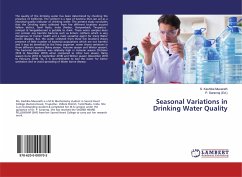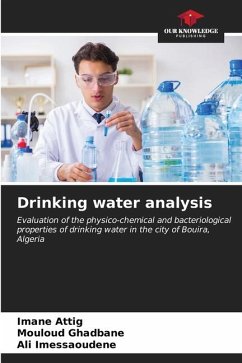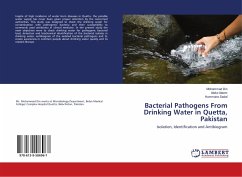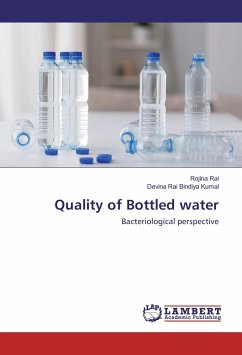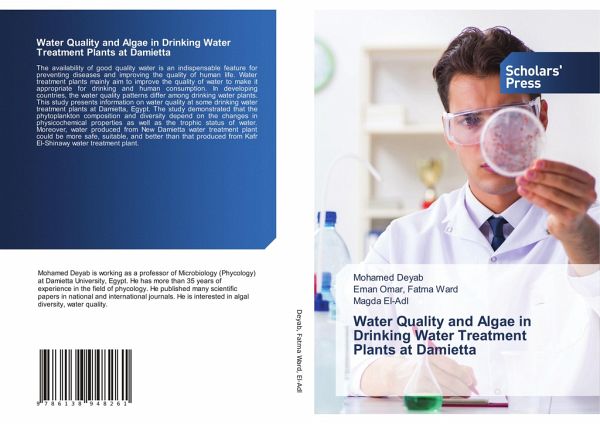
Water Quality and Algae in Drinking Water Treatment Plants at Damietta
Versandkostenfrei!
Versandfertig in 6-10 Tagen
59,99 €
inkl. MwSt.

PAYBACK Punkte
30 °P sammeln!
The availability of good quality water is an indispensable feature for preventing diseases and improving the quality of human life. Water treatment plants mainly aim to improve the quality of water to make it appropriate for drinking and human consumption. In developing countries, the water quality patterns differ among drinking water plants. This study presents information on water quality at some drinking water treatment plants at Damietta, Egypt. The study demonstrated that the phytoplankton composition and diversity depend on the changes in physicochemical properties as well as the trophic...
The availability of good quality water is an indispensable feature for preventing diseases and improving the quality of human life. Water treatment plants mainly aim to improve the quality of water to make it appropriate for drinking and human consumption. In developing countries, the water quality patterns differ among drinking water plants. This study presents information on water quality at some drinking water treatment plants at Damietta, Egypt. The study demonstrated that the phytoplankton composition and diversity depend on the changes in physicochemical properties as well as the trophic status of water. Moreover, water produced from New Damietta water treatment plant could be more safe, suitable, and better than that produced from Kafr El-Shinawy water treatment plant.



